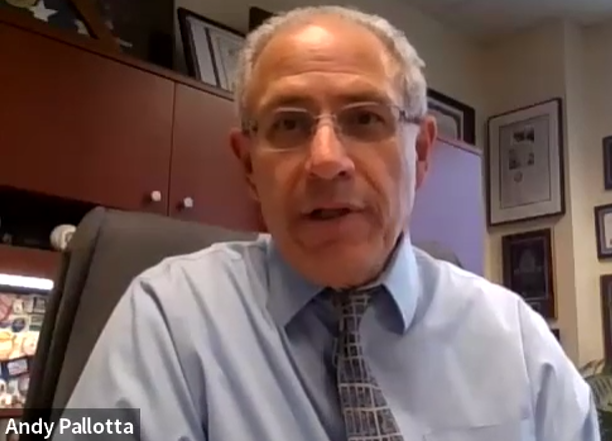Polls tend to be barometers of public opinion, whether it is supporting or opposing public policies, proposals, or even public figures. Yet not every poll is fair. Survey questions can be phrased or formatted in a way that skews answers, as seems to be the case with a recent poll published by the New York State United Teachers (NYSUT).
Partnering with the United Federation of Teachers (UFT), a teachers union representing New York City teachers, NYSUT announced the results of their poll which claimed that New York voters “overwhelmingly oppose any expansion of charter schools” in favor of focusing “on programs that strengthen local public schools.”
NYSUT President Andy Pallotta said at a press briefing, “Concerned citizens’ groups and lawmakers are rallying to oppose this move [to allow for more charter schools]. And, as this poll now shows, it’s incredibly unpopular with New York voters.”
UFT President Michael Mulgrew concurred with Pallotta’s statement and said, “It’s clear that parents and communities really don’t want an expansion of charters.” Mulgrew added, “They understand that the resources are being drained from public schools.”
However, there are transparency and credibility problems with the poll.
First, the NYSUT/UFT poll was not fully transparent about the poll’s questions, answers, and methodology. It is standard practice for polling firms to publish their questions, answers, and overall methodology for the poll. But this poll only released two questions (out of an unspecified number of questions) to the public and provided a three-page summary about its methodology and overall findings.
Second, options for answers were illogically grouped together, which likely skewed answers. For example, a question posed a variety of school- or classroom-specific policy ideas as answer options, such as “expanding literacy” or addressing teacher vacancies. But the last answer option for the question was about increasing the number of charter schools, which is not a school- or classroom-specific policy idea. If the answer options are not in the same category, the poll results were guaranteed to be inaccurate, which is what happened in the NYSUT/UFT poll.
Third, one poll does not change the reality that there is an established historical trend of high parental support for charter schools. There are at least four polls in the past four years that show parents’ sustained support for charter school and school choice options for their children.
An online survey at Morning Consult, commissioned by school choice group Democrats for Education Reform (DFER-NY), found 64% of parents have a favorable opinion of charter schools and 64% of parents support raising the existing cap on charter schools in New York City. These findings directly contradicted the teachers unions’ poll findings.
The Morning Consult survey follows up on a 2019 poll, commissioned by the same group, where a majority of Millennial voters supported charter schools across all racial and ethnic backgrounds (such as 67% among African-Americans and 58% among Whites) and “every key Democratic constituency supports public charter schools as part of other public school choice options.”
A 2022 poll conducted by The Harris Poll firm found that 74% of parents “would consider sending their child to a public charter school if one were available in their area” and 77% of parents “support expanding the number of slots in existing public charter schools in their area.”
Then there is the annual National School Choice Poll, which found similar polling data. Among its key findings, the poll found 66% of public school parents support school choice options and over 71% of Latino parents and 74% of African American parents support school choice options in education.
The controversial NYSUT/UFT poll was conducted by Hart Research Associates, which progressive jobs website Idealist called “one of the leading public opinion research firms in the U.S., specializing in political polling for Democratic candidates and survey research for progressive causes, public affairs, nonprofit organizations, foundations, variety of advocacy groups and media outlets.”
The misrepresentation of the NYSUT/UFT poll points to a much deeper issue than just a poorly conducted survey. The vast majority of teachers unions’ revenue comes from traditional public school teachers’ dues payments. If those traditional public schools are forced to compete with charters, causing them to lose teachers (which is happening across the country), unions like NYSUT will take a financial hit.
Ultimately, the NYSUT/UFT poll highlights the unions’ grip on the charter school narrative and the importance of maintaining a healthy skepticism of union-backed narratives in the public square.
